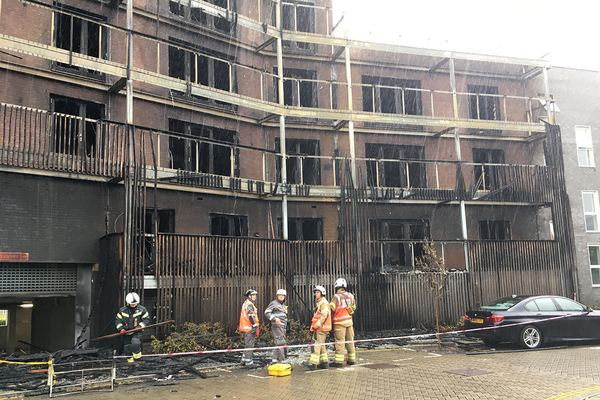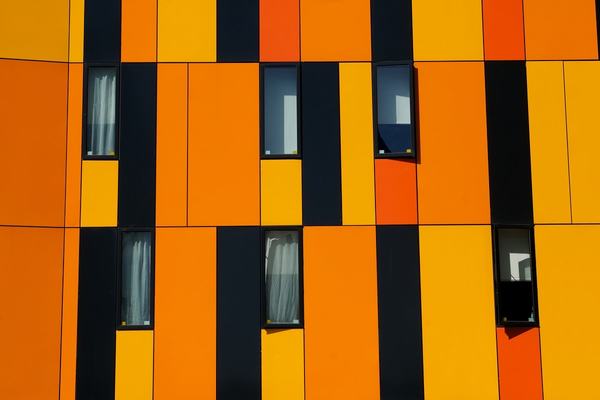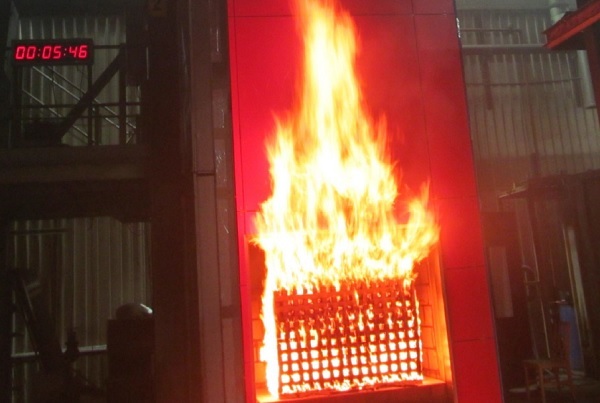Wood cladding linked to Barking fire identified on multiple housing association developments
Housing associations are urgently investigating developments using the same material found covering the Barking block partly destroyed by a fire two weeks ago, as an Inside Housing investigation has discovered 20 developments using the product.
Clarion, L&Q and Peabody have all said they are carrying out work to deal with potential issues arising from ThermoWood, the wooden material used on the balconies and cladding at Samuel Garside House, the site of a fire earlier this month.
The fire damaged 47 flats, including eight that will take six months to make habitable again, with residents forced to flee for their lives.
Inside Housing revealed shortly afterwards that the cladding used was ThermoWood, a Class D-rated material.
Following a ban on combustibles on high rises brought in last November, official government guidance does not permit the material to be used on new build blocks over 18m.
It would still have been banned on high rises under previous guidance, unless it was proved safe by evidence from a large scale test or used on balconies.
However, it was and is permitted on buildings below 18m. Samuel Garside House is understood to be under 18m.
Inside Housing has used planning documents and developers’ marketing material to build a list of 20 more schemes – mostly in London – using ThermoWood as either cladding or decking for balconies.
This includes a six-storey development in Lewisham which is owned by Clarion and is clad with ThermoWood. Responding to Inside Housing, a spokesperson for the organisation said: “Our residents’ safety is paramount.
“We are working alongside our partners to investigate the issue as a matter of urgency and will carry out any improvement works that are required.”
Seven of the 20 developments identified include at least one high-rise building, of six storeys or more, within the scheme.
One of these was Titanic Quarter in Belfast, a massive development including 474 apartments, with balconies clad in ThermoWood.
A spokesperson for Titanic Quarter said: “Our development - the ARC, Titanic Quarter - has been constructed in compliance with building control and fire safety regulations and received Full Building Control certification. We are aware of the recent fire in Barking and are closely monitoring the outcome of the investigation.”
Meanwhile, L&Q’s flagship Quebec Quarter development in Canada Water, which includes blocks of up to six storeys but all under 18m, has also been revealed to have ThermoWood present.
An L&Q spokesperson said: “L&Q is compiling a list of blocks which have extensive timber cladding, including but not limited to ThermoWood.” They added that they were undertaking this work in preparation of the latest fire safety advice from experts and said all of its buildings had up to date fire risk assessments.
A source close to Peabody, which owns a 10-storey block in Bow called Merchants Walk with ThermoWood panels, said the association is looking at the whole estate to evaluate the risks.
A spokesperson said the association was reviewing all of its blocks and making improvements where needed, and had acted on a number of blocks. They added: "We continue to replace materials we consider to be higher risk."
The builder Countryside, meanwhile, declined to comment on its Silver Point scheme in Enfield, which at one point is eight storeys high and uses ThermoWood cladding.
Inside Housing also identified 13 mid-rise blocks of between three and five storeys using ThermoWood as either cladding or balconies.
It is possible to treat ThermoWood to give it a higher fire rating of Class B. This would mean current building regulations would still forbid it from being used on new high-rise buildings.
However guidance before regulations were changed by the government last November would have permitted it. It is still permitted on buildings built before that period.
None of the organisations contacted by Inside Housing was able to confirm whether or not the ThermoWood used on its scheme had been treated in this way.
The organisations involved in Samuel Garside House
Inside Housing has identified the key organisations involved in developing and managing Samuel Garside House:
Developer: Bellway
Architect: Sheppard Robson
Building owner (headlease): Adriatic Land
Freeholder of land: Greater London Authority/L&Q
Management: HomeGround, which appointed RMG (part of Places for People)
Building control: NHBC
Owner of affordable homes (32 of 80): Southern Housing Group











